On a chilly Tuesday night in Copenhagen, Denmark, students rush inside from the rain as the sky darkens. Although it’s already evening and most Danes are heading home, class is about to begin for the women enrolled at the ReDI School of Digital Integration.
The school is a nonprofit organization that offers free technology classes to women with migrant and refugee backgrounds. Founded in Germany in 2016, the organization aims to help women advance in the digital workforce and integrate into the technology labor markets of Denmark, Germany and Sweden.
Why It’s Newsworthy: The ReDI School not only serves to diversify the technology field in Denmark and help women advance in digital careers. The nonprofit also acts as a pathway for integration into Danish society, where immigrants, especially from non-Western countries, have lower employment rates according to StatBank Denmark’s 2021 statistics.One of the women rushing in from the rain on this evening of classes is Julia Nasution, a student at the school who moved to Denmark in 2018 with her husband and child, who is now 9 years old. A pink thermos on her desk reads “Mom.”
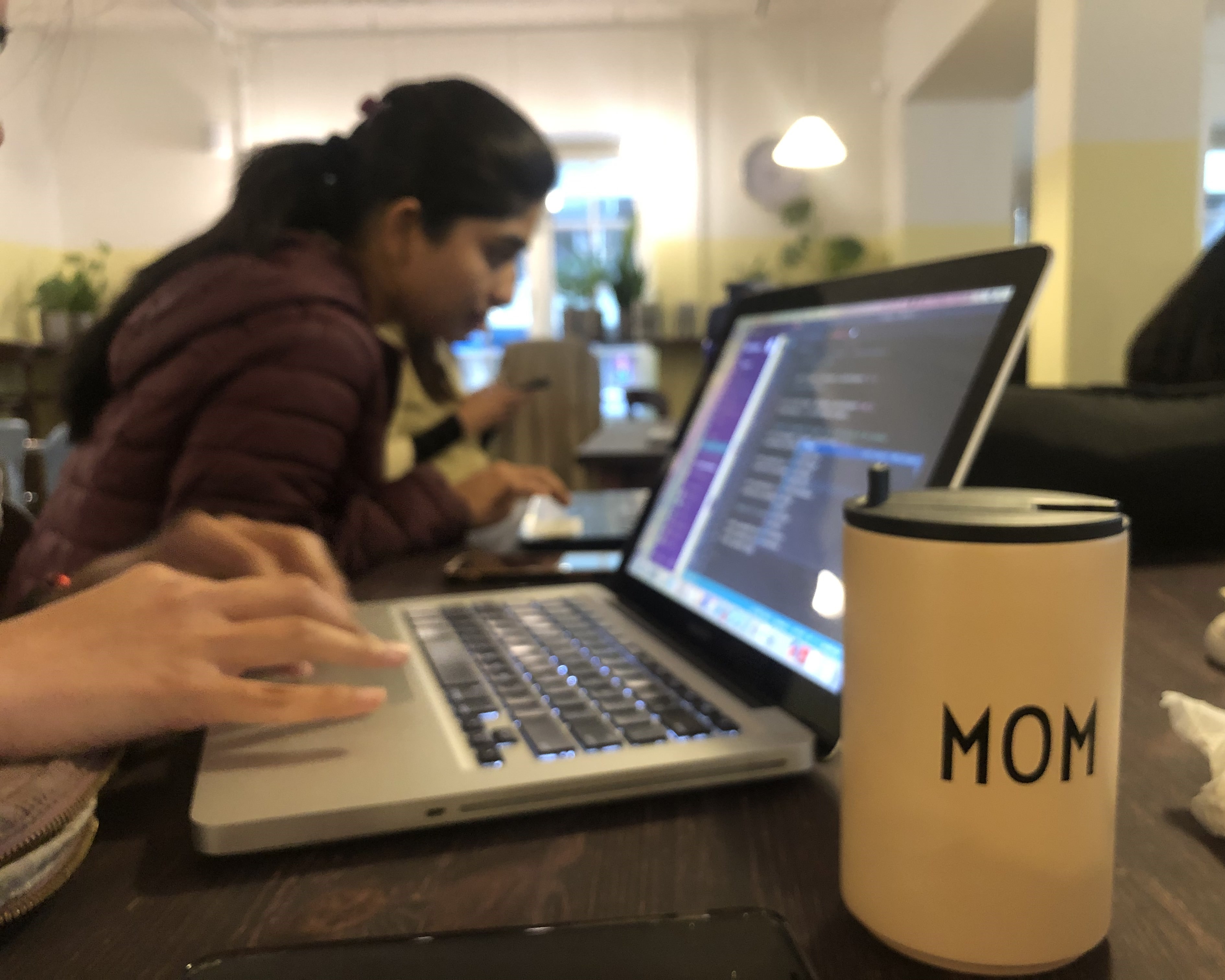
“Me and my husband simply wanted to experience more than just working. We moved here to have a work-life balance. Because in my country, I’m from Indonesia, it’s kind of hard to have a work-life balance,” Nasution said. “[In Denmark] the system really supports you… It’s very possible to work and also have a life as a mom.”
Nasution studied business communication and digital media in the Netherlands. Because her husband works in Denmark and she has a family reunification residence permit, Nasution is permitted to work in the country, and has a part-time job at a consulting and travel company, organizing events and tours.
Through her weekly programming class at the ReDI School, she hopes to learn a new skill to help her in the job market and advance her career.
Many students have a bachelor’s degree in a technology-related subject but have had difficulty finding a job in the digital field, or have education that is outdated or not suited for the Danish labor market, according to Gustav Hertz Holm, a paid tech program assistant at the school.
For example, Lilla Nogrady is from Hungary and is studying user experience at the ReDI School. Nogrady moved to Denmark in 2019 and attended the University College of Northern Denmark. Like many students at the ReDI school, she studied marketing, but is now looking to gain new skills to help her find a full-time job.
“I think many people are in the same situation here, who would either like to switch careers or didn’t find anything in their field,” Nogrady said. “It’s really nice that everybody is here with the same purpose, that everybody would really like to learn. Everyone is very invested in it.”
https://www.instagram.com/p/CtB6va1rKl8/
In Denmark, the ReDI School has been in Copenhagen since 2019 and opened in Aarhus in 2022. According to Camay Barrett, the program manager for the tech education and career programs in Copenhagen, the Danish school has 12 employees between the two cities.
For staff member Hertz Holm, the opportunity to work at the school aligned with his studies in political science at the University of Copenhagen and was a place he could see himself making a difference. 500-600 students have gone through the school’s programs in Denmark, with about 100 volunteers serving as teachers and coaches.
The school has two programs, digital beginners and tech-career. The digital beginners program is meant to provide fundamental skills to navigate a highly digital society.
The tech career program, which Nasution is enrolled in, provides career activities and specialized classes in areas such as web development, user-centered design, cybersecurity, cloud computing and data analytics. Nasution is taking a front-end web development course on this rainy night of classes.
The women enrolled at the school range widely in age and nationality, according to Hertz Holm. Students, like Nasution and Nogrady, are typically between 20 to 50 years old and come from around 47 nationalities. The average student is around 36 years old, and around half of the students are from India.
According to Barrett, the school provides an essential function to connect the students to Danish society and diversify Copenhagen’s technology field.
“If you look at the demographics of gender equality in the labor market, women are less employed in Denmark, regardless of if they’re Danish or non-Danish. If you then look at migrant status, it’s even lower. And then if you look at market status based on where they’re coming from, which in Danish statistics is segregated by Western and non-Western, then it drops even more,” Barrett said.
Total employment in Denmark in 2021 was at 79% while 75.2% of immigrants from Western countries were employed and 65.8% of immigrants from non-Western countries were employed, according to the StatBank Denmark statistics.
The staff and volunteers of the school seek to bridge these gaps of employment, nationality and gender, with non-Western immigrants facing disparities in participation in the labor market, as seen in the StatBank Denmark’s employment rates.
Attitudes Toward Integration in Denmark
In 2015, when Europe experienced a crisis of increased migration, especially from Syria, many European and Danish citizens stepped up to welcome refugees and asylum seekers. The ReDI School is a prime example, founded in 2016 in response to the migration crisis.
While the school serves women of refugee and migrant backgrounds, the target group was expanded in Denmark to include first or second generation immigrants to better match the demographics of applicants.
While less than 5% of the Danish tech program are refugees, according to Barrett, the Danish digital beginners program and German branch of the organization serve more refugee women. The goal of the school to help women integrate into Danish society stands in the middle of a debate in Europe on how to include foreigners.
Since 2014, Denmark has received over 31,000 Syrian immigrants, according to Eurostat data. But among European Union nations, this is relatively few compared to Germany, France, Spain and Austria, who received the most first-time asylum applicants, each receiving over 100,000 in 2022 alone.
Furthermore, public policy in Denmark has shifted to considering refugees as temporary residents who are expected to leave when conditions in the home country improve.
“There's a mix of messages being given to refugees,” said Eva Singer, the director of asylum at the Danish Refugee Council. “On one hand, you need to integrate, you need to learn the language, you need to get a job, you need to become self-sufficient. At the same time you're constantly being told [that] as soon as the situation in your home country changes, you need to return.”
The Danish government has created different categories of refugees that limit their rights while staying within the boundaries of international law, according to Singer. The goal is to minimize incentives for refugees who look to Denmark for safety.
“A large portion of the population think that integration is too difficult, so we need to keep people out of the country,” Singer said. “Some of the politicians will also very bluntly say it's because people coming are Muslims. It's a different religion, a different culture, we will never be able to integrate them.”
In 2022, Denmark became the first European country to rule that some Syrian immigrants no longer merit asylum status and revoke their residency permits. Right-wing groups such as the Danish People’s Party represent opposition to more open borders.
However, public opinion appears to be shifting. Although the Danish People’s Party was Denmark’s second-biggest political party in 2015, it has lost votes in recent elections, according to the Danish Parliament election results. Furthermore, only 19% of Danish voters agreed with the government's plans to deport Syrian refugees, according to a survey by Danish market researcher Voxmeter.
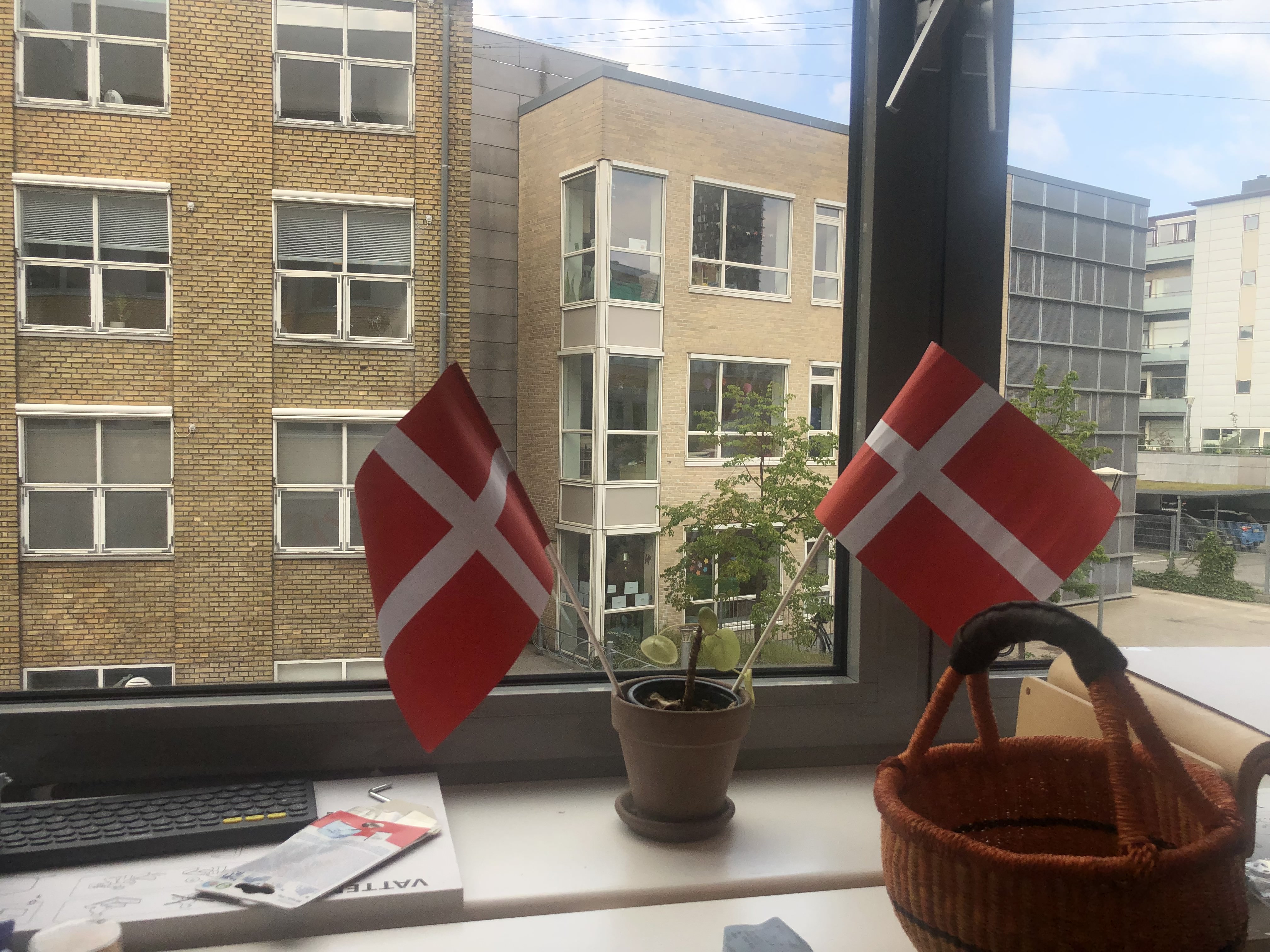
Still, in a state with a robust welfare system and a long history of ethnic homogeneity, Danes have been protective of citizenship. According to the European Commission, it takes 16 years on average to become a Danish citizen, with some of the most strict naturalization requirements in the world.
“When there is a cake to share, [some fear] there will not be enough pieces for everybody,” said Silvia Adamo, an associate professor in immigration and integration law at the University of Copenhagen. “There is this fear that the welfare state will collapse economically.”
Because of this, Singer said pathways to citizenship are not encouraged in Denmark the way they often are for immigrants in the United States. This can make participation in the labor force difficult. While EU citizens like Nogrady, who is Hungarian, are able to work in Denmark, immigrants from other nationalities, like Nasution, require a permit.
“Denmark has always had a difficult path to citizenship, but it's just become more and more difficult,” Singer said. “For many refugees, the obstacles to becoming citizens is [so high] that they will never become citizens… Even to go from a temporary residence permit to a permanent residence permit is extremely difficult.”
However, ongoing integration efforts by civil society organizations, such as the ReDI School are still working to make Denmark a home for all.
A Focus on Digital Integration
According to Adamo, integration in Denmark means entering the workforce, learning the Danish language and culture, and ultimately becoming a self-supporting, active member of Danish society on equal footing with Danish citizens. Nasution, for example, spent her first year in Denmark learning the language to be able to work in the country.
From the perspective of teachers at the ReDI School, another important part of integration is digital literacy.
Elvi Nissen works at a consultancy called TrustWorks in Denmark, and volunteers to teach user experience design classes at the ReDI School.
“Denmark is one of the most digitized communities in the world,” Nissen said. “We have a high degree of digitization. You need to actually know how to use the internet, you need to know how to relate to stuff you see online in order to just be a citizen of Denmark.”
This need is emphasized by the lack of gender equality in technology fields. The science, technology, engineering and math fields are the education areas with the largest gender imbalances in favor of men in Denmark and most countries, according to a 2018 report from McKinsey & Company.
ReDI School student Nogrady is looking for a full-time job in user experience, but said that the conflict in Ukraine has affected the economy and many company’s willingness to hire new employees.
“I'm having a very hard time finding a full time job now because of the hiring freeze… so I think it's very important to stay competitive in the job market,” Nogrady said.
When markets are burdened by high inflation and economic uncertainty, employers become even more selective when hiring new candidates.
“It's easier for non-women and white people to get a job… a lot of people just for one reason or the other can't find a job even though they are highly educated,” Hertz Holm said.
Challenges and Government Responsibility
Applicants to the school are judged based on whether or not they already have full-time employment in the tech field or a field relevant to their studies. According to Barrett, the school looks for students who are working outside their educational field, in a blue collar job or unemployed, and also considers household income.
The school does not have the capacity to accept all applicants to their classes. According to Barrett, 250-300 people applied to the tech program last semester, and 115 applications were accepted. As a nonprofit, the school has limited funding, which comes from corporate partners and philanthropies through grants.
The main limitations of the school, according to Barrett, are physical space and a small staff. While the organization has plenty of volunteer teachers and an office space in Copenhagen, the school itself has no permanent location. Classes meet in office spaces lent to the school for free by local businesses. The school also cannot supply all students with resources such as laptops.
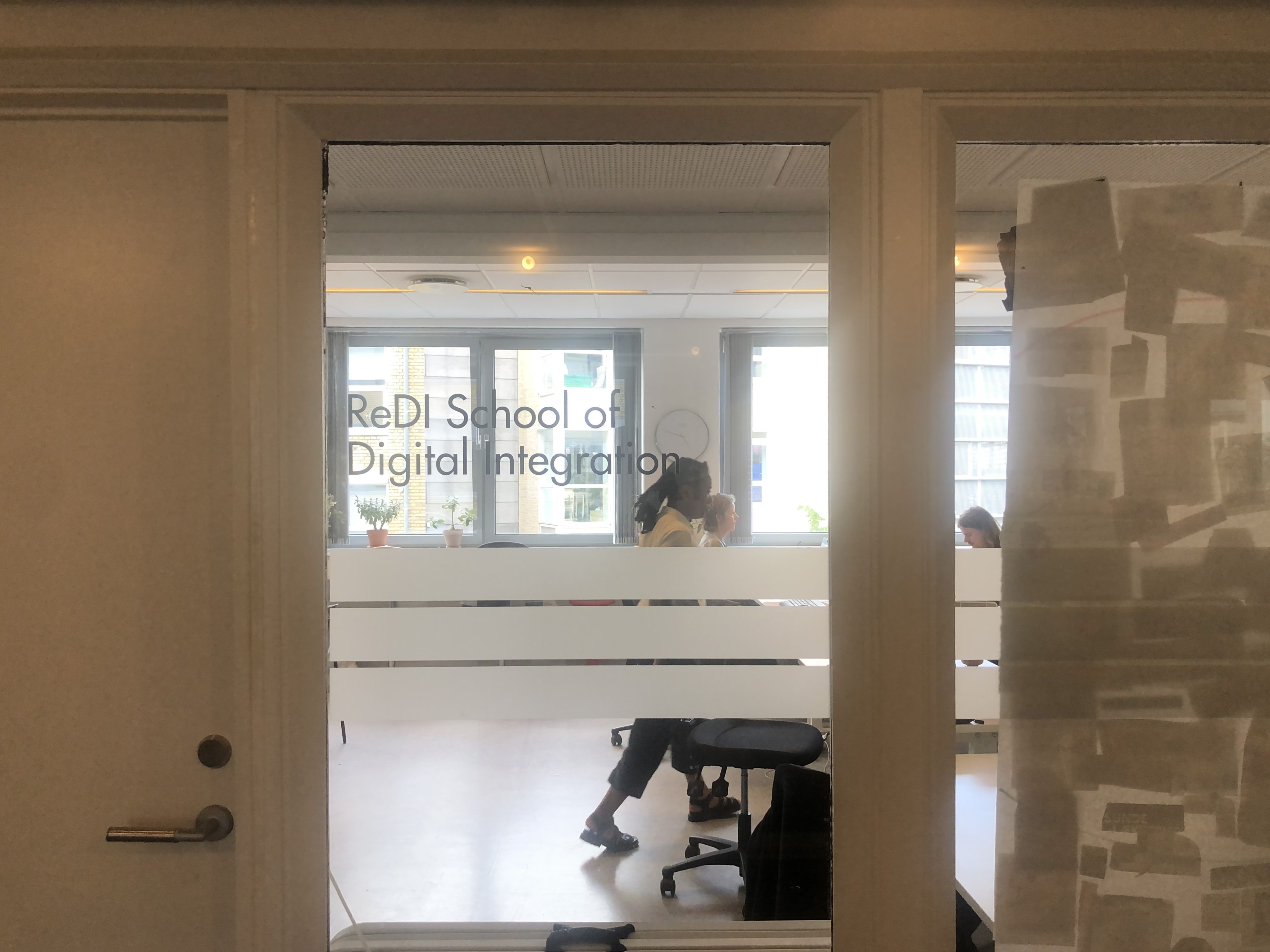
Another limitation lies in the nature of the organization. While nonprofits such as the ReDI School reflect an eagerness of the Danish people to welcome foreigners despite legal obstacles from politicians, their work also demonstrates a reluctance of the Danish government to help integrate newcomers.
“I think we do part of the job that is to some point the job of the state,” Hertz Holm said.
Civil society organizations are often run by volunteers and lack legal obligation and accountability to provide the best services. According to Adamo, the same issue exists in the US, which does not have a federal legal framework for integration.
“You cannot expect [volunteers] to have all the knowledge that a civil servant in the municipalities has the responsibility [to know],” Singer said. “There has been a discussion for some years that the municipalities cannot just push all their responsibility over to volunteers in order to save money.”
Another challenge to integration efforts is the more fundamental question of whether or to what extent refugees and immigrants should be asked to integrate. For many women coming to Denmark from more traditional cultures, the idea of joining the workforce and sending children to daycare is already a new way of life.
“The women come from countries where they don't work outside of the house. And in Denmark, you have to do that in order to get support from the state. So there has been a lot of emphasis on getting women out to the labor market, which is, for some groups more than others, very difficult,” Singer said.
Adamo believes Denmark could also consider adapting to better accommodate other cultures, a value that she sees more in the education systems of the United States and Canada.
It is expected from the immigrants [that] they bear the biggest share of integration. That's what I'd like to challenge,” Adamo said.
“There's no legislation that says that, but indirectly you can have this conclusion about the attitude that it is expected from the immigrants they bear the biggest share of integration. That's what I'd like to challenge,” Adamo said.
Despite different approaches and perspectives on integration, Adamo feels that supporting belongingness will improve Danish society.
“The more people feel they belong, the more society as a whole benefits from it,” Adamo said.
Community and Confidence
Nooshin Lashgari is a student at the ReDI School and is learning to code to find work in the user experience and user interface design fields. Originally from Dubai, she moved to Copenhagen almost four years ago with her husband and found integration to be difficult.
“There is not much information given to you when you arrive here,” Lashgari said. “It wasn't an easy process for me. It took me a long time to integrate and get used to everything, and still I have lots in front of me.”
But at the ReDI School, Lashgari found a network that connected her to other women in her situation and to the technology field in Denmark on a professional level. The school’s tech career program helps connect students with jobs and internships and learn about Danish work culture, like how to format an email and CVs.
“You feel you belong to a community [at the school], and that opens many doors for you in terms of interaction with different people and getting experience,” Lashgari said. “This is a very good way of getting to the market and having an expanded network.”
In a male-dominated field and a historically ethnically homogenous country, the students at the school find a group of women that support and uplift one another.
“I think this might just be a confidence booster as well. They're getting a network, they're getting to talk to other people,” Nissen said. “I've been working abroad for a number of years… I know what it's like to be in a foreign country without that much of a network.”
Career activities also include one-on-one mentorships, company visits, workshops for hard and soft skills, talent matching and internship collaborations. According to Hertz Holm, the school has a high success rate in getting students jobs or internships.
And after spending hours in evening classes and career activities together, some women also find friendships in a new country.
“[Students] also get in touch with a community, which for some of them is something new and something to make their life better,” Hertz Holm said. “Some of them also get new friends and a feeling of self confidence.”
As a class breaks after the first hour of JavaScript debugging, women turn to their neighbors, grab a snack and unwind. Some don’t look old enough to have finished high school. Others have left their kids home with their husbands for the evening. At the back of the class, women with gray hair and in business attire look sleepily at the code on their screens.
Whatever their story, their job or their nationality, the women have come to the class this evening to seize an opportunity for a better life and a brighter future in a new country. For the students, teachers and staff involved in this opportunity, the school is much more than its curriculum.
I think if we didn't exist, many of the women that we support would be lost,” Barrett said.
“This connection that we create, at least in the tech education program, of supporting migrants in transition, I think is always going to be necessary,” Barrett said. “I think if we didn't exist, many of the women that we support would be lost.”
Lilly Kersh is a fourth-year journalism major minoring in German and international affairs and earning a certificate in new media.



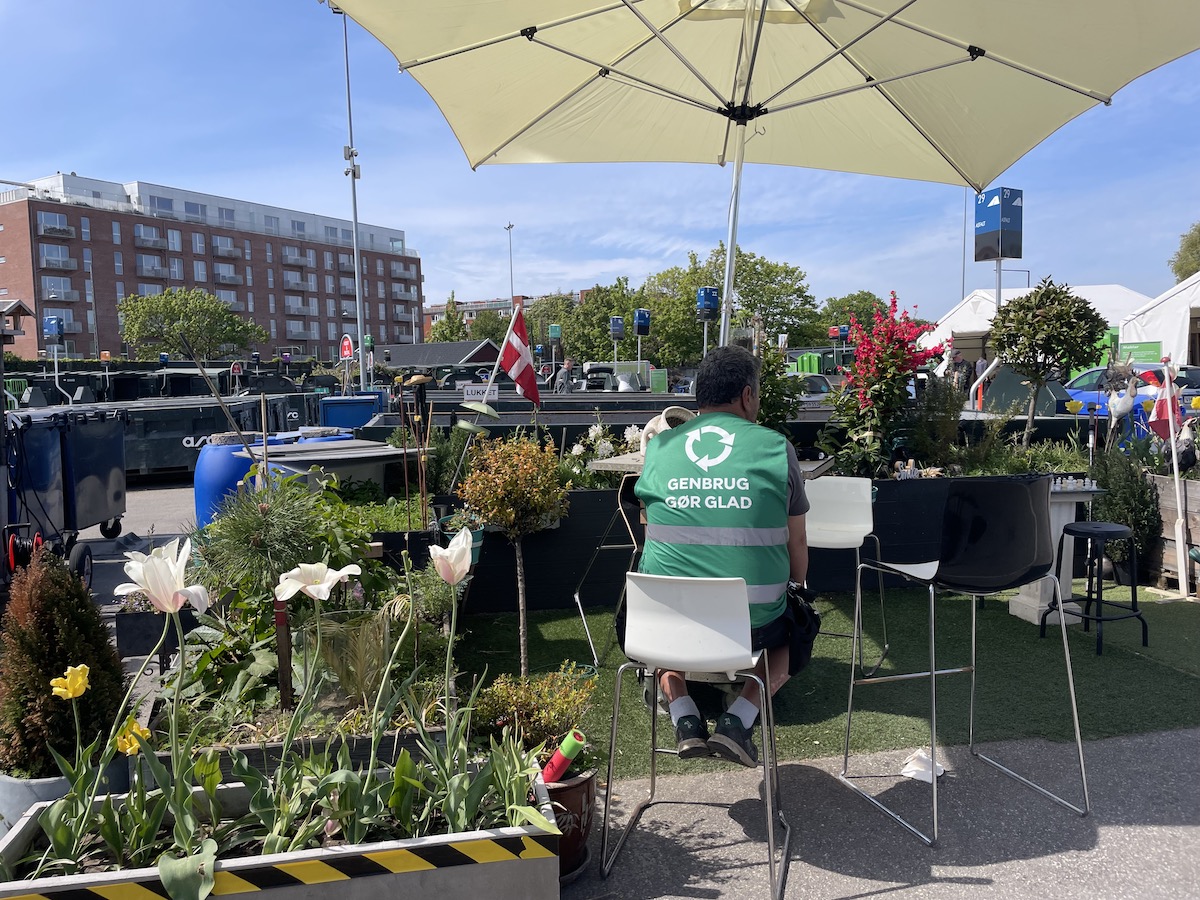
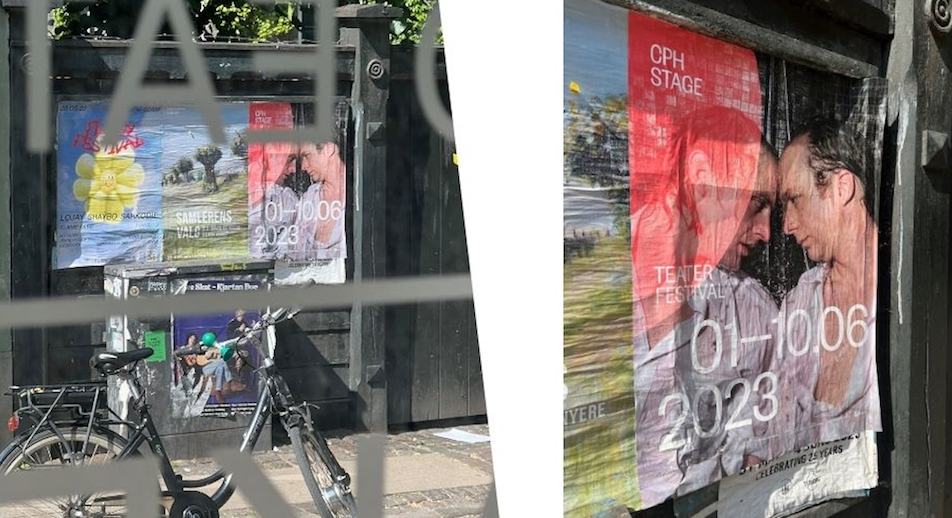




Show Comments (0)